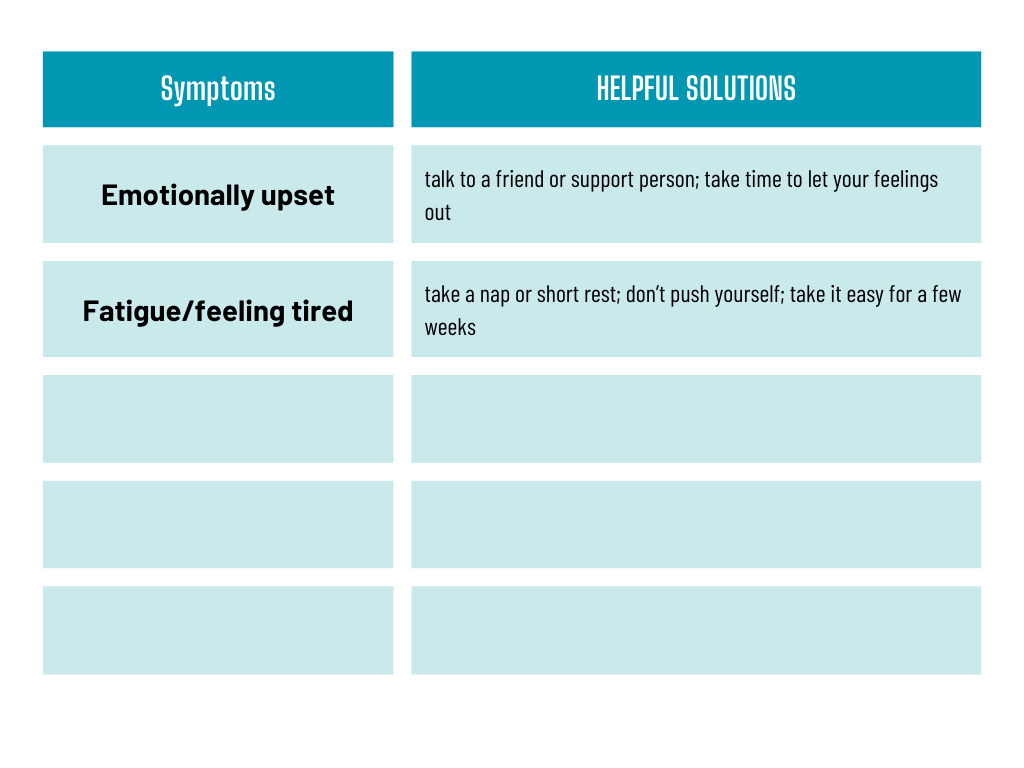Health and Wellness

For cancer patients, dealing with a cancer diagnosis and treatment can be stressful, so managing stress is very important.
But what exactly is stress? In medicine, we define stress as our body’s natural reaction to physical, mental, or emotional pressure. When we experience stress, our body enters what we call the “stress response” or “fight-or-flight” mode. Our heart rate, blood pressure, and blood sugar levels can increase, and our muscles can tense in preparation for action. This response is beneficial when facing something like a lion in the wild, but not so much when dealing with our everyday worries.
If you’re a cancer patient or know someone who is, remember – it’s okay to feel stressed at times. Finding healthy ways to cope can not only make the journey a little easier but also give our bodies the best chance to fight back against cancer.
Click below to learn more:
How can stress affect you?

- Stress can affect our mood
- Stress can impact our physical health by weakening the immune system, affecting sleep, and even making it harder for the body to heal
That’s where managing stress comes in because when stress levels are lower, it can help cancer patients cope better with their treatment, recover faster, and even improve their quality of life.
How to overcome negative self-talk and stigma?

Cancer-related stigma is when people hold negative beliefs or attitudes towards themselves or individuals who have been affected by cancer. This stigma can create feelings of shame, fear, or isolation for those dealing with cancer, making it harder for them to cope and seek support.
Some ways to overcome negative self-talk include:
- Positive Re-framing – try replacing negative thoughts with things that you are currently doing to improve your health without judgment.
- Self-Empathy – think about how you talk to yourself- Is your voice positive? Supportive? You are your best friend; try practicing self-empathy by talking to yourself as you would speak to your best friend.
- Clarifying Your Values – try writing down a list of the things that are most important in your life (these may include things like “being a good friend” or “your kids.” Remind yourself of your values when negative thoughts come to mind.
How can you bring stress levels down?

- Exercise
- Talking to love ones
- Relaxation techniques
- Grounding helps you detach from emotional pain in different ways. Try describing your environment using all your senses, running cool or warm water over your hands, or repeating a coping statement like, “I can handle this” or “This feeling will pass.”
- Mindfulness
All meditations provided courtesy to the Benson-Henry Institute for Mind-Body Medicine at Massachusetts General Hospital








For more guided meditations click here
For more information on navigating wellness please visit: https://navigatingwellness.org/ or https://www.nccih.nih.gov/health
Common Symptoms and Helpful Solutions

For your safety, always be sure to report symptoms and and consult with your clinical care team.
The SUPPORT trial team is dedicated to building trust and empowering you with the knowledge and resources needed to combat cancer and enhance health outcomes for everyone.















